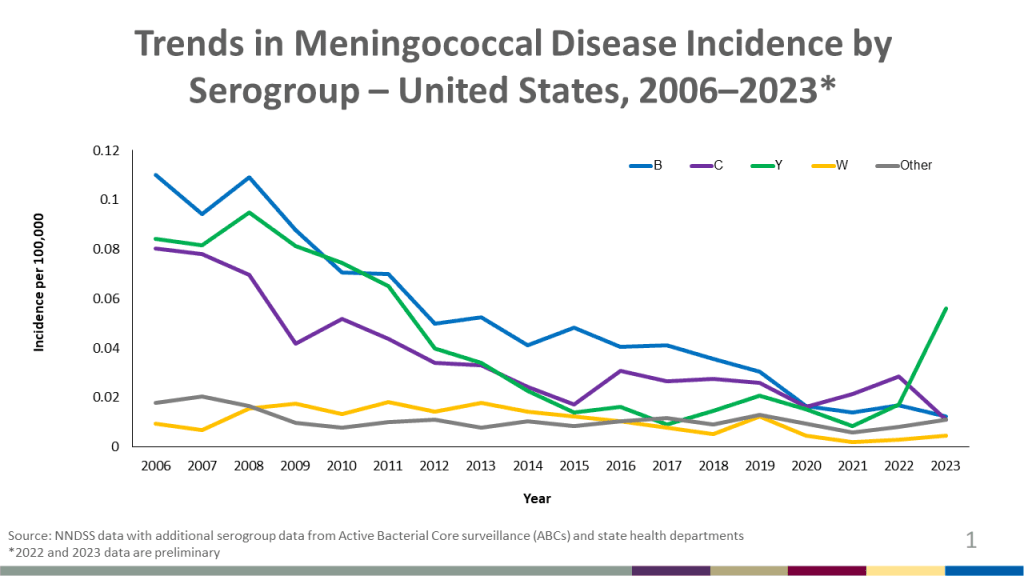Deadly meningococcal disease with a range of symptoms sparks CDC warning as 2024 cases surge
Deadly meningococcal disease with a range of symptoms sparks CDC warning as 2024 cases surge
A considerable number of cases occurred in people who were not up to date on meningococcal vaccines. The case fatality rate is alarmingly high.
The Centers for Disease Control and Prevention (CDC) issued a health advisory alerting healthcare providers in response to a surge in invasive meningococcal disease, particularly related to Neisseria meningitidis serogroup Y.
The predominant cause of this surge is a specific meningococcal strain identified as sequence type (ST) 1466, responsible for the majority (68%) of serogroup Y cases in 2023. This strain is notably affecting individuals aged 30 to 60 years, Black or African American populations, and those with HIV.
Furthermore, the clinical presentation of meningococcal disease caused by ST-1466 differs from the typical meningitis manifestation, with a significant proportion (64%) presenting with bacteremia—bacteria in the bloodstream.
This bloodstream infection, called septicemia, causes damage to the walls of blood vessels, resulting in bleeding to the skin and organs. Symptoms include cold hands and feet, severe aches in the muscles, joints, chest, or abdomen, rapid breathing, diarrhea, and, left untreated, a dark purple rash.

Last year saw the highest annual tally of cases reported in the United States since 2014, with 422 cases documented. Alarmingly, as of March 25, 143 cases have already been reported in 2024, marking a significant rise from the 81 cases reported during the same period in 2023.
A considerable number of cases occurred in individuals who were not up to date on meningococcal vaccines, highlighting the urgency of vaccination efforts, particularly among vulnerable populations.
The case fatality rate associated with this strain stands at 18%, surpassing the historical rate reported for serogroup Y cases.
According to CDC recommendations, healthcare providers should:
- have a heightened suspicion for meningococcal disease, particularly among populations disproportionately affected by the current increase
- be aware that patients may present without symptoms typical of meningitis
- ensure that all people recommended for meningococcal vaccination (including people with HIV) are up to date for meningococcal vaccines.
The CDC also emphasizes the critical need for immediate antibiotic treatment for suspected meningococcal disease cases, underscoring the potentially rapid progression of the illness.
Additionally, public awareness campaigns are encouraged, to prompt medical attention upon symptom presentation and facilitating discussions with healthcare providers regarding vaccination recommendations. Collaboration between public health departments, healthcare providers, and the public is crucial in mitigating the impact of this health crisis.
(7)



